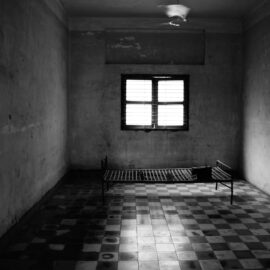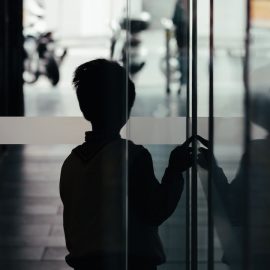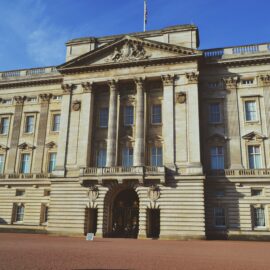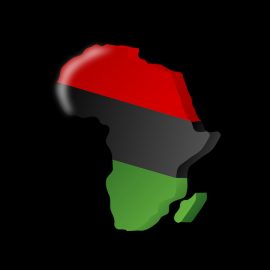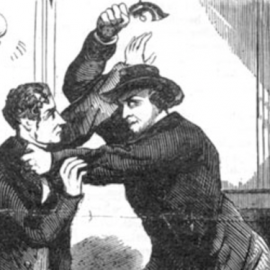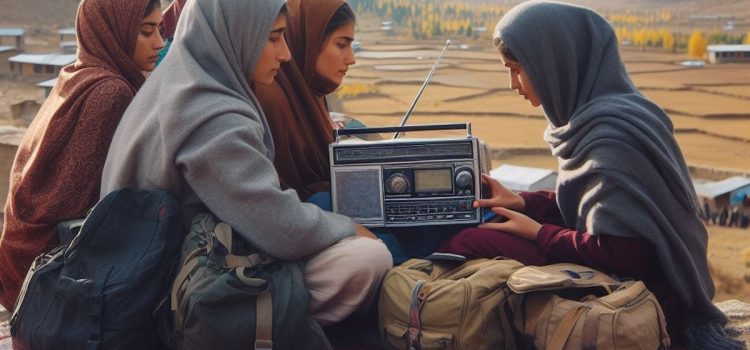
Who was Maulana Fazlullah? Why was he called the Radio Mullah? What was life like under his rule?
It started with aid to remote Pakistani villages devastated by an earthquake. But, Maulana Fazlullah and other mullahs used this disaster to preach against women and girls and increasingly (and violently) restrict their liberties.
Keep reading to learn about the actions of a brutal ruler that motivated Malala Yousafzai to speak out.
Maulana Fazlullah Comes to Power
In her autobiography, Malala Yousafzai discusses how Maulana Fazlullah (“the Radio Mullah”) came to power in Pakistan’s Swat Valley and cracked down on women and girls.
In 2002, the MMA Alliance won the elections in Malala’s province. They were a group of five religious parties, including the one that had run the madrasas where the Taliban were trained. The MMA tore down billboards featuring pictures of women or covered the images with black paint. They took female mannequins from clothing shops and insisted women wear head coverings.
Malala’s father opened his high school in 2003; at the time, boys and girls were in the same classes. But, by the following year, the atmosphere in the province had changed so much that having co-ed classes was no longer an option.
In 2005, a massive 7.6 earthquake hit Pakistan, killing over 73,000 people. The Movement for the Enforcement of Islamic Law, or TNSM—a group that had sent men to fight alongside the Taliban in Afghanistan and was now led by Maulana Fazlullah—provided some aid to remote villages that the government hadn’t been able to help.
Taking advantage of the atmosphere of fear created by the earthquake, mullahs (religious leaders) from the TNSM preached that the earthquake was a punishment from God for women’s freedoms and obscenity. The mullahs warned that, if people did not adopt sharia, or Islamic law, God would send more severe punishments.
(Shortform note: Terrorist groups often exploit crises—whether political, economic, or humanitarian—to further their agenda. Like the TNSM, they may use natural disasters to warn people against behavior they deem sinful. They may also take advantage of crises to gain political credibility and demonstrate that they have value to the community beyond armed conflict, a tactic that’s especially effective in areas where government services are lacking. For example, jihadist groups such as the Taliban, Hezbollah, and al-Shabaab provided health services during the Covid-19 pandemic when the government was unable to do so effectively.)
The Radio Mullah Sets Up Mullah FM
Malala was 10 when the Taliban came to the Swat Valley, seemingly appearing out of nowhere. The Taliban fighters were armed with knives and Kalashnikovs (assault rifles) and wore black badges that said “Sharia law or martyrdom.”
Their leader was 28-year-old Fazlullah. He set up a radio station in the Swat Valley known as Mullah FM, and people called him the Radio Mullah. Many people in Swat got all of their information from the radio because they didn’t have a TV or were illiterate.
(Shortform note: The literacy rate in Pakistan ranged from about 54% to 59% from 2006 to 2019. Men’s literacy in Pakistan has long been significantly higher than women’s.)
Soon, says Malala, the Radio Mullah began telling people to stop listening to music, watching movies, and dancing—activities that he said were sinful and had caused the earthquake. Malala asked her father if the Quran really prohibited those things, and Ziauddin told her that the Radio Mullah was making it up.
However, many people were fed up with the slow-moving and corrupt Pakistani justice system, so they agreed with Fazlullah’s ideas about bringing back Islamic law. Six months after Mullah FM began broadcasting, people started heeding Fazlullah’s admonishments to get rid of their TVs, CDs, and DVDs. The Taliban gathered the electronics in huge piles and burned them in the streets. Malala’s family hid their TV in a cupboard and watched it on low volume.
(Shortform note: The Taliban in both Pakistan and Afghanistan banned all forms of entertainment and most forms of independent media, claiming that music, movies, and TV shows were un-Islamic, immoral, and obscene. While these prohibitions purported to be on religious grounds, in reality, they allowed the Taliban to maintain authoritarian control over the flow of information to the Pakistani and Afghan people, as well as to the outside world.)
Fazlullah often preached directly to women, instructing them to stay home and go outside only in emergencies. Malala was confused by this because she knew that the Quran did not say that women should stay home and only men could go out. But even Malala’s mother believed that the Quran prohibited women from leaving the home without a male relative.
Soon, the Radio Mullah was preaching that girls should not go to school. On his radio program, he named girls who had quit school and congratulated them, saying they’d go to heaven. He also told women not to go shopping at the bazaar. If they did try to go, the Taliban would shout at and intimidate them until they went home.
(Shortform note: The practice of secluding women from public observation and enforcing high standards of female modesty is called purdah. Purdah limits interactions between men and women, as well as limiting women’s ability to move freely outside the home. In the Muslim tradition, it begins at puberty. Some fundamentalist Islamic states, like Iran and Taliban-run Afghanistan, punish women merely for leaving the house or wearing the veil in a manner deemed improper. But Islamic modernists argue that the Quran does not require women to stay home or wear a veil, and that women have the same right to participate in public affairs as men.)
Public Whippings, Morality Police, and Restrictions on Females
Then Fazlullah began holding local “courts” called shura to resolve disputes. The shura instituted public whippings as punishments. Fazlullah set up a stage where people were flogged in front of cheering crowds. Next, he established a morality police who patrolled the streets in pickup trucks, wielding machine guns.
One day, when Malala and her family were passing through a Taliban checkpoint, Taliban soldiers carrying Kalashnikovs told Malala and her mother that their failure to wear Burqas was shameful. When the family returned home, they found a note from the Taliban on the gates of Ziauddin’s school. It threatened severe punishment unless the school stopped teaching girls.
While all this was happening, the authorities and the people did nothing to stop it. Malala’s father said that people had been seduced by Fazlullah.
However, clashes between the Taliban and the Pakistani government in Islamabad (the capital of Pakistan) led Musharraf to send the army into the Swat Valley. This was the beginning of a conflict between the army and the Swat Taliban that would last for years.
It was hard for Malala to sleep at night because of all the noise from the machine guns and cannons. The army succeeded in driving Fazlullah and his fighters into the mountains, but within a week, 40 Taliban leaders from across Malala’s province met to form a united front. They called themselves the TTP, or Pakistan Taliban. Besides fighting government forces, they also acted as a morality police, targeting women who weren’t observing purdah.
Benazir Bhutto, a former prime minister who had recently returned from exile, gave a speech in which she condemned the militants. Immediately after the speech, she was assassinated. Many Pakistanis, including Malala, felt that their hope for democracy and women’s rights in the country died along with her.
School Bombings and Growing Opposition
Malala continued going to school despite the Taliban’s prohibition on girls’ education. She hid her book bag on the way there and back and didn’t wear her uniform to avoid detection by the Taliban.
The fighting continued in the Swat Valley in 2007 and 2008. Fazlullah started blowing up schools, usually after the night curfew when no one was in them. There were school bombings almost every day. One of them killed 10 members of Malala’s best friend’s family. By the end of 2008, the Taliban had destroyed over 400 schools.
Some of the Pashtun elders in Swat, including Ziauddin, banded together to challenge Fazlullah. They spoke out against the Taliban by giving interviews on radio programs like Voice of America and the BBC. Malala’s father encouraged her to speak up, and she began giving interviews as well.


